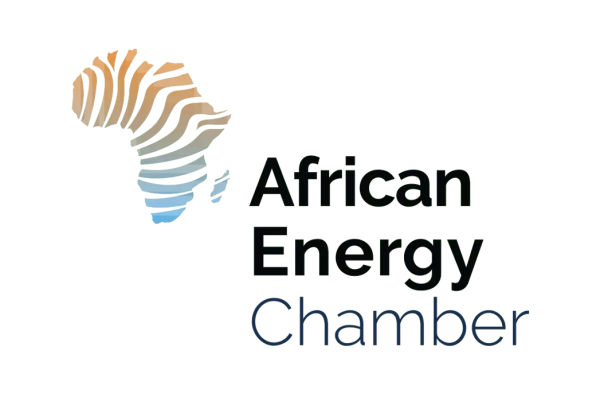At a time when the energy transition presents newfound challenges for large-scale oil and gas projects in Africa, a wave of fiscal reforms has shown how policy serves as a catalyst for development. A webinar titled, Africa’s Giant Fields: Faster and Greener, and hosted by the African Energy Chamber (AEC) (https://EnergyChamber.org) and S&P Global Commodity Insights on November 16, 2023, delved into the timelines of key upstream projects in Africa, underscoring how regulation played an instrumental part in advancing the timeline from discovery to production.
Kicking off the discussion, Verner Ayukegba, Senior Vice President of the AEC stated that “It is really important to try and figure out what it takes to develop African projects and resources – both oil and gas – in record time so that we can continue to attract investments in the sector.” Ayukegba highlighted that this subject was a key part of the discussions at African Energy Week (AEW) (https://AECWeek.com) in October 2023, and that the anticipation is high for the continuation of this dialogue going into AEW 2024 – scheduled for 4-8 November.
Echoing Ayukegba’s sentiment and highlighting challenges for large-scale developments, Etienne Kolly, Associate Director of Upstream Solutions Africa at S&P Global, emphasized that “access to capital is challenging [and that] the decarbonization topic is important for the timeline of these projects.”
Analene Enslin, Technical Research Principal of Upstream Solutions Africa at S&P Global, also believes that “Timelines are affected by many factors, with oil projects less complicated compared to gas.”
According to Enslin, some factors include “government fiscal regimes and host governments relationships with the partners in the country.”
The concern globally is how to make these projects greener as banks are becoming more reluctant to fund oil and gas projects. Rebecca Vyse, Director of Upstream Solutions Europe at S&P Global, stated that in Europe, “shareholders of funds are refusing to invest in oil and gas projects that are not reducing emissions.”
However, African projects are showing promise with some of them reaching final investment decisions and a few estimated to reach first oil in 2024. Kolly explained that Eni is set to showcase the feasibility of an offshore net-zero oil development in Ivory Coast: the Baleine field. Meanwhile, energy companies bp expects reaching first gas at the Greater Tortue Ahmeyim project while Woodside Energy is targeting first oil at Sangomar oilfield development in 2024.
In Mozambique, TotalEnergies, Eni and ExxonMobil, along with their partners, are advancing the development of multi-trillion cubic feet (tcf) gas reserves from expansive complexes using innovative mid-scale Liquefied Natural Gas plants. According to Nicholas Waters, Sr Technical Research of Upstream Solutions Africa at S&P Global, the comparative analysis of fiscal regimes reveals relative similarity among the considered nations.
In terms of oil, Mauritania adopts cautious fiscal terms. Senegal’s 2019 Production Sharing Agreement terms, transitioning from the frontier to the de-risked frontier, are advantageous. Ivory Coast offers negotiable and attractive fiscal terms, including contractor-paid Corporate Income Tax (CIT). In terms of gas, Mauritania strategically adopts cautious fiscal terms for gas revenues given its developmental stage. Senegal enjoys the most favorable terms, facilitating a transition from frontier to de-risked frontier. Tanzania faces challenges with poor fiscal terms, prompting a recent revision to attract investors.
The long-term outlook regarding oil and gas was also brought into question. On this note, Joseph Medou the General Manager of Reseau Gazier du Senegal, stated that, “In Senegal, we have a lot of demand. By 2030, we see 500 million standard cubic feet (mscf/d) a day in demand which can go up to 700 mscf/d a day.”
Senegal is engaging in exploring gas export opportunities to neighboring countries through the Nigerian Gas pipeline project and the Maghreb-Europe Gas Pipeline. The initiative involves the transportation of gas from Senegal and Mauritania to Morocco, with the ultimate aim of reaching the European market. The strategy encompasses both local gas consumption within Senegal and potential sales to Europe, showcasing the long-term viability of oil and gas in Africa.
On the decarbonization side, leveraging renewable energy to power operations and reduce emissions has become a strategic method for attracting investment. Tasnika Goorhoo, Sr Technical Research of Upstream Solutions Africa at S&P Global, emphasized that BlueFloat Energy is advancing the Granadilla 50MW project in the Canary Islands and Greenalia is working on a 250MW project. These projects have played a central role in enhancing the attractiveness for foreign capital, and upcoming developments in Africa should adopt the same approach.
Distributed by APO Group on behalf of African Energy Chamber.
